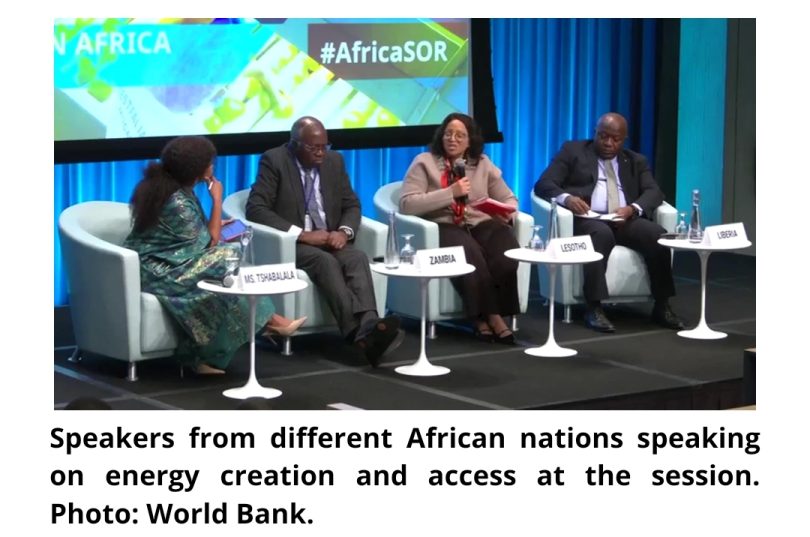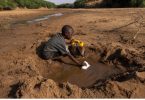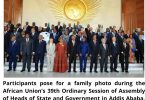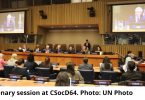The urgent need to connect Africa’s vast job creation potential with sustainable energy solutions and supportive policy frameworks dominated discussions at the “State of the Africa Region” event during the recent 2025 IMF-World Bank Group Annual Meetings.
Bringing together top World Bank officials, African finance ministers, and entrepreneurs from across the continent, the session focused its attention on a clear and single consensus: unlocking widespread employment hinges significantly on overcoming energy deficits and robustly enabling the private sector, particularly small and medium enterprises (SMEs).
The session, moderated by Nozipho Tshabalala, framed job creation not just as an economic goal, but as a fundamental tool for poverty reduction. Anna Bierde, World Bank Managing Director of Operations, opened by directly linking the two priorities.
“Why are we focused on jobs? We’re focused on jobs because we’re focused on poverty reduction,” she stated, emphasizing that stable employment combats the “uncertainty” that is a key feature of poverty.
Bierde outlined a multi-dimensional strategy resting on three pillars: strengthening “foundational infrastructure,” encompassing not only crucial energy, roads, digital, and water systems but also vital “soft infrastructure” like health, education, and nutrition; cultivating an “enabling environment” through stable business policies to attract investment; and ensuring sufficient “resource mobilization,” with a strong focus on leveraging “private capital mobilization” due to the limitations of public funds and aid. She identified infrastructure, agriculture, healthcare, tourism, and value-added manufacturing as key job-driving sectors, stressing that SMEs are the primary engine, creating “80% plus of jobs” globally.
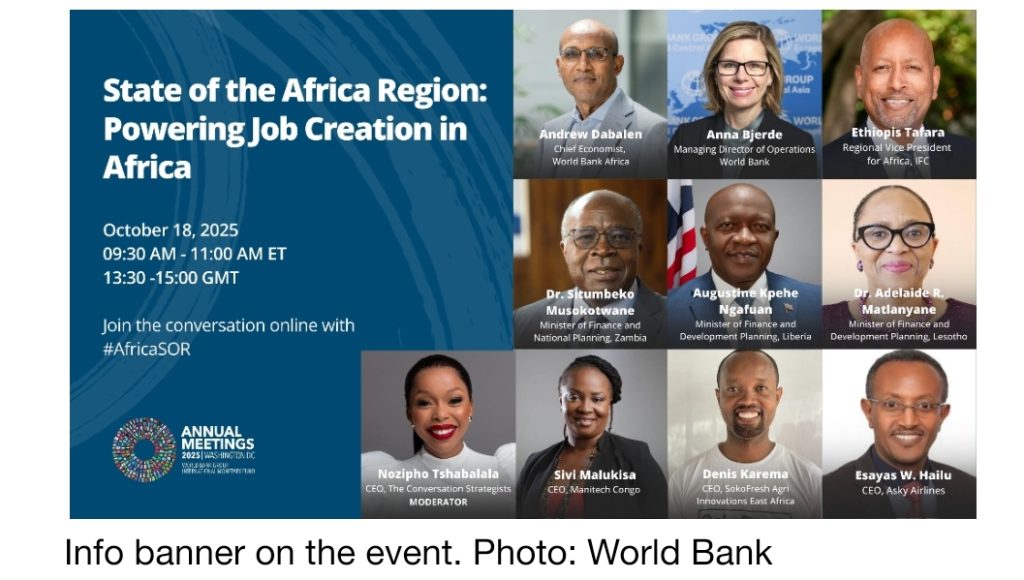
Andrew Delin, the World Bank’s Africa Region Chief Economist, provided a sobering economic backdrop. While Africa shows resilience with projected growth nearing 4%, controlled inflation, and stabilizing currencies, it faces “huge risks”. These include declining Official Development Assistance (ODA), high debt burdens, the recent end of the US’s African Growth and Opportunity Act (AGOA), and the EU’s looming Carbon Border Adjustment Mechanism. The core challenge, Delin noted, is twofold: absorbing an unprecedented 600 million new entrants into the working-age population – “something that has never been seen before…in history” – and improving job quality, as three-quarters of current jobs are low-productivity, offering little chance for income growth or poverty exit. “Reliability of energy, affordability of energy is absolutely important,” Delin stated, adding a challenge: “You will not find a country that is high income that is a low energy consumer. You will not.” He stressed this non-negotiable need alongside better “market access” for businesses, both domestically and internationally.
Acknowledging the constraints entrepreneurs face, Bierde highlighted common struggles, including skills gaps, access to finance, and administrative hurdles. She pointed to World Bank Group initiatives like MIGA guarantees and IFC’s support, including the Safari Fund, aimed at bolstering the private sector. The ambitious Mission 300 initiative was highlighted, driven by the fact that Africa is “the only place on earth where we still have less than 50% of people…connected to electricity”. Bierde framed it as essential not just for basic access, but also as a critical “economic driver” that requires a focus on grid expansion, generation, and efficiency.
Entrepreneurs Speak on Energy Needs and Policy Hurdles
The realities faced by African businesses were brought sharply into focus by entrepreneurs on the panel:
Dennis Karema, CEO of Kenya’s Soko Fresh, detailed how his company combats the staggering 40% post-harvest loss in agriculture. By deploying mobile, solar-powered cold storage units in rural areas, Soko Fresh leverages Africa’s abundant “free energy from the sun” to bypass unreliable grid infrastructure. This provides affordable cooling, preserves crop quality, increases farmer income, and has catalyzed local economies, enabling the creation of around 1,000 direct jobs annually. “We wanted to solve a food problem but ended up also solving an energy and a jobs problem,” Karema concluded, illustrating the powerful synergies possible.
Sivi Malukisa, CEO of Manytech in the DRC, offered a moving account of her struggle to build and sustain a food processing business. Starting in her kitchen and facing pandemic disruptions, the most significant ongoing challenge is energy scarcity. “We have to stop producing sometime when the electricity is gone,” she explained, highlighting the inefficiency of relying on small generators and even reverting to manual processes. This unreliability directly impacts employment stability. Malukisa estimated that with consistent power, her workforce could expand dramatically, potentially from 30 to 80 people working multiple shifts. Her plea for “Money!” underscored the critical lack of appropriately sized and accessible financing for entrepreneurs like her, who are often deemed “not eligible” by existing systems. She urged policymakers to prioritize the basics: “water, electricity, road.”.
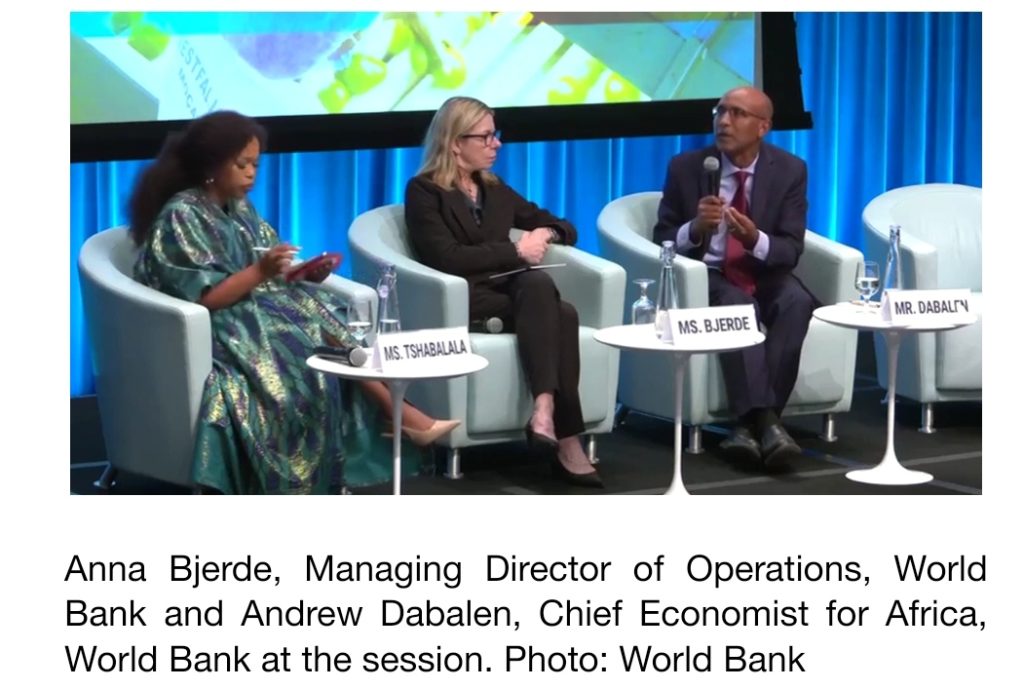
Isaias Hailu, CEO of Asky Airlines, presented a strong case for aviation as fundamental infrastructure, vital for connecting Africa’s vast geography and enabling trade, tourism, and investment. He lamented the sector’s underperformance relative to Africa’s potential, citing restrictive bilateral agreements, protectionism, and excessive taxation. “In Africa, we are very good at invoking slogans,” Hailu observed, citing the Single African Air Transport Market (SATM) and the Continental Free Trade Area (AfCFTA) as initiatives needing genuine implementation rather than remaining “beautiful buzzwords” ignored after meetings. He pointed out that African aviation faces higher taxes than tobacco and alcohol, with taxes comprising a third of ticket prices, and fuel costs 30% higher than in Europe, crippling the narrow-margin airline industry. “Let’s reduce tax on aviation and let’s fertilize the economy,” he implored, arguing that enabling aviation boosts numerous related industries and fosters broader economic stability.
Call for Integrated Action and Policy Realignment
The dialogue consistently circled back to the need for integrated solutions and decisive policy action. Key takeaways included:
- Energy as the Foundation: Universal access to reliable, affordable energy is non-negotiable. This requires massive investment across the board – from large-scale generation and transmission (including vital cross-border projects) to decentralised solutions like solar, alongside grid efficiency improvements. Mission 300 provides a crucial framework.
- Private Sector Enablement is Key: Governments must actively foster an environment where businesses, especially SMEs, can start, grow, and thrive. This means tackling regulatory hurdles, ensuring policy stability, improving access to finance (with instruments tailored to SME needs), investing in skills, and genuinely implementing regional free trade agreements to expand markets.
- Policy Must Be Facilitative, Not an Impediment: As several speakers stressed, policies and regulations should enable, not hinder, private sector activity and job creation. This requires ongoing dialogue and a willingness to reform legacy systems and address bottlenecks identified by businesses.
- Scale and Urgency are Paramount: Given the demographic pressures and the depth of the challenges, incremental approaches are insufficient. Bold reforms, large-scale investments, and swift implementation are needed.
The session closed with remarks from World Bank Vice Presidents, who highlighted again that job creation isn’t an isolated endeavors and cannot be achieved without addressing other aspects of society. As Guangzhe Chen, World Bank VP for Infrastructure, stated regarding Mission 300,
“Without the leadership of the country, without the partnership with the private sector, without the support for our development partner, MC 100 will not happen. But if we can put our heart and our mind, and our action together, we can really make a big difference.”
Energy access, private-sector dynamism, and supportive government policies are inextricably linked components of Africa’s job-creation imperative.
Written by Dr. Florence Omisakin


